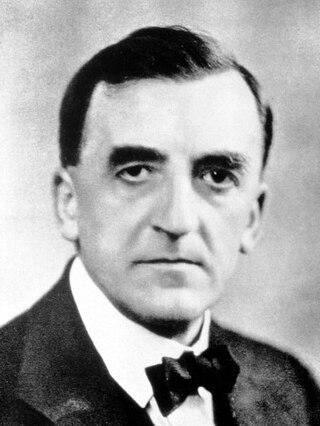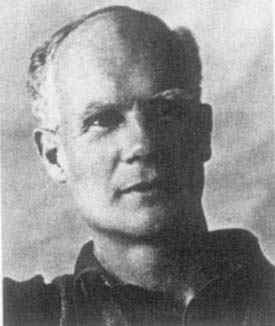
In statistics, exploratory data analysis (EDA) is an approach of analyzing data sets to summarize their main characteristics, often using statistical graphics and other data visualization methods. A statistical model can be used or not, but primarily EDA is for seeing what the data can tell us beyond the formal modeling and thereby contrasts traditional hypothesis testing. Exploratory data analysis has been promoted by John Tukey since 1970 to encourage statisticians to explore the data, and possibly formulate hypotheses that could lead to new data collection and experiments. EDA is different from initial data analysis (IDA), which focuses more narrowly on checking assumptions required for model fitting and hypothesis testing, and handling missing values and making transformations of variables as needed. EDA encompasses IDA.

The Royal Statistical Society (RSS) is an established statistical society. It has three main roles: a British learned society for statistics, a professional body for statisticians and a charity which promotes statistics for the public good.

Major Greenwood FRS was an English epidemiologist and statistician.
Sir Arthur Lyon Bowley, FBA was an English statistician and economist who worked on economic statistics and pioneered the use of sampling techniques in social surveys.

Egon Sharpe Pearson was one of three children of Karl Pearson and Maria, née Sharpe, and, like his father, a British statistician.
The Institute of Mathematical Statistics is an international professional and scholarly society devoted to the development, dissemination, and application of statistics and probability. The Institute currently has about 4,000 members in all parts of the world. Beginning in 2005, the institute started offering joint membership with the Bernoulli Society for Mathematical Statistics and Probability as well as with the International Statistical Institute. The Institute was founded in 1935 with Harry C. Carver and Henry L. Rietz as its two most important supporters. The institute publishes a variety of journals, and holds several international conference every year.
Leonard Henry Caleb Tippett, known professionally as L. H. C. Tippett, was an English statistician.
The International Statistical Institute (ISI) is a professional association of statisticians. It was founded in 1885, although there had been international statistical congresses since 1853. The institute has about 4,000 elected members from government, academia, and the private sector. The affiliated associations have membership open to any professional statistician.
The Journal of the Royal Statistical Society is a peer-reviewed scientific journal of statistics. It comprises three series and is published by Oxford University Press for the Royal Statistical Society.
In statistics, L-moments are a sequence of statistics used to summarize the shape of a probability distribution. They are linear combinations of order statistics (L-statistics) analogous to conventional moments, and can be used to calculate quantities analogous to standard deviation, skewness and kurtosis, termed the L-scale, L-skewness and L-kurtosis respectively. Standardised L-moments are called L-moment ratios and are analogous to standardized moments. Just as for conventional moments, a theoretical distribution has a set of population L-moments. Sample L-moments can be defined for a sample from the population, and can be used as estimators of the population L-moments.
Terence Michael Frederick Smith was a British statistician known for his research in survey sampling.

Robert Clifford Gentleman is a Canadian statistician and bioinformatician who is currently the founding executive director of the Center for Computational Biomedicine at Harvard Medical School. He was previously the vice president of computational biology at 23andMe. Gentleman is recognized, along with Ross Ihaka, as one of the originators of the R programming language and the Bioconductor project.

Julian Ernst Besag FRS was a British statistician known chiefly for his work in spatial statistics, and Bayesian inference.
Jianqing Fan is a statistician, financial econometrician, and data scientist. He is currently the Frederick L. Moore '18 Professor of Finance, Professor of Operations Research and Financial Engineering, Professor of Statistics and Machine Learning, and a former Chairman of Department of Operations Research and Financial Engineering (2012–2015) and a former director of Committee of Statistical Studies (2005–2017) at Princeton University, where he directs both statistics lab and financial econometrics lab since 2008.
Dorothy Morrow Gilford was an American statistician who headed the Division of Mathematical Sciences at the Office of Naval Research, the National Center for Education Statistics, and the Conference Board of the Mathematical Sciences. She was the editor of The Aging Population in the Twenty-First Century: Statistics for Health Policy.
Wendy L. Martinez is an American statistician. She directs the Mathematical Statistics Research Center of the Bureau of Labor Statistics, and is the coordinating editor of the journal Statistics Surveys. In 2018, Martinez was elected president of the American Statistical Association for the 2020 term.
Caroline Uhler is a Swiss statistician working in the field of machine learning and applications in genomics. Her research focuses on developing methods for causal inference to infer regulatory relationships from different data modalities. She is a Full Professor in the Department of Electrical Engineering and Computer Science and the Institute for Data, Systems and Society at the Massachusetts Institute of Technology. In addition, she is a Core Institute Member at the Broad Institute, where she directs the Eric and Wendy Schmidt Center.
The Caucus for Women in Statistics is a professional society for women in statistics. It was founded in 1971, following discussions in 1969 and 1970 at the annual meetings of the American Statistical Association, with Donna Brogan as its first president. The Governing Council is the main governing body of the Caucus. The Council consists of the President, President-Elect, Past President, Past Past President, Executive Director (ex-officio), Treasurer, Secretary, Membership Chair, Program Committee Chair, Communications Committee Chair, Professional Development Committee Chair, Chair of Liaisons with other organizations and the Chair of Country Representatives. The President-Elect, President, Past President, Secretary, and Treasurer constitute the Executive Committee of the Governing Council. Caucus governance is described in the Constitution and Bylaws.
Rochelle (Shelly) Wilkie Martinez is an American government statistician.
María Dolores (Lola) Ugarte Martínez is a Spanish statistician specializing in spatial analysis, spatio-temporal analysis, epidemiology, and small area estimation. She is a professor in the Statistics, Computer Science, and Mathematics Department at the Public University of Navarre.





